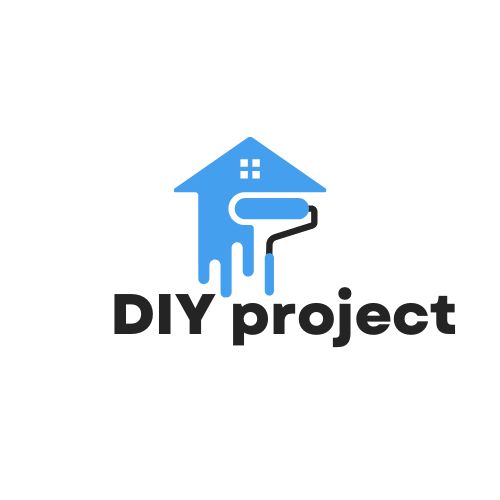Importance of Agile Development in Modern Software Projects
Agile development has revolutionized the way organizations build software by emphasizing flexibility, collaboration, and rapid iteration. In today’s fast-paced digital environment, businesses must adapt quickly to market changes, customer demands, and emerging technologies. Agile methodologies enable teams to break down complex projects into manageable tasks, allowing for continuous improvement and swift delivery. This approach is critical for organizations that seek to remain competitive, as it facilitates the rapid release of high-quality software products that meet evolving market needs.
Overview of Continuous Testing and Its Impact on Agile Processes
Continuous testing is a fundamental component of agile development, providing a systematic approach to quality assurance throughout the software lifecycle. By integrating testing processes into every stage of development, organizations can identify defects early, reduce rework, and ensure that software quality is maintained as changes are made. Continuous testing accelerates the release cycle by providing immediate feedback, which enables developers to correct issues before they escalate. The integration of comprehensive QA practices through QA testing solution services has become essential for driving efficiency and reliability in agile workflows.
Understanding Continuous Testing
Definition and Core Concepts of Continuous Testing
Continuous testing is an iterative process that involves executing automated tests as part of the software development pipeline. The goal is to ensure that every code change is verified for functionality, performance, and security in real-time. This approach relies on a combination of automated test scripts, real-time monitoring, and integrated feedback mechanisms. Core concepts of continuous testing include test automation, early defect detection, and seamless integration with continuous integration/continuous deployment (CI/CD) systems. The process is designed to catch issues as soon as they are introduced, thereby reducing the cost and time associated with fixing defects later in the development cycle.
Benefits of Continuous Testing in an Agile Environment
The benefits of continuous testing are manifold, especially within an agile framework. Continuous testing reduces the risk of defect accumulation by providing immediate insights into the quality of code. This rapid feedback loop allows teams to address issues, thereby minimizing development delays promptly. Additionally, continuous testing promotes better collaboration between developers and testers, fostering a culture of shared responsibility for quality. The overall result is enhanced software reliability, reduced downtime, and a significant improvement in the time-to-market for new features. By adopting continuous testing practices, organizations can achieve higher levels of operational efficiency and better meet customer expectations.
The Role of QA Testing Solution Services in Continuous Testing
Introduction to QA Testing Solution Services
QA testing solution services provide a comprehensive framework to support continuous testing within agile development. They offer a suite of tools designed to automate and manage the testing process, ensuring that every phase of development is rigorously validated. By integrating with CI/CD pipelines, QA testing solution services facilitate a seamless flow of testing activities that continuously verify the quality of the software. Such services are indispensable for organizations aiming to maintain high-quality standards while accelerating the development cycle.
Key Features and Capabilities of QA Testing Solution Services for Agile Teams
QA testing solution services are built on several key features that empower agile teams to achieve continuous testing success:
- Automation of Test Execution: These services provide robust automation frameworks that run tests consistently across various environments. Automation reduces the likelihood of human error and speeds up the testing process.
- Real-Time Reporting and Analytics: Integrated dashboards offer real-time insights into test results, allowing teams to monitor progress and quickly address issues.
- Seamless CI/CD Integration: The solution seamlessly integrates with continuous integration and deployment systems, ensuring that testing is an integral part of every code change.
- Comprehensive Test Coverage: The services cover various types of testing, including unit, integration, performance, and security testing, ensuring that every aspect of the application is validated.
- Scalability and Flexibility: Designed to adapt to the changing needs of agile projects, these services scale with the organization, supporting projects of all sizes and complexities.
These capabilities enable organizations to maintain a rigorous and efficient testing process, ensuring that quality remains at the forefront of agile development.
How QA Testing Solution Services Support Continuous Integration and Delivery
QA testing solution services are critical in supporting continuous integration and continuous delivery (CI/CD) by automating the testing pipeline. They allow for the continuous execution of tests, providing immediate feedback whenever new code is integrated. This seamless integration minimizes disruptions and ensures that each release maintains the expected quality standards. As a result, teams can confidently deploy new features at a faster pace, knowing that the risk of defects is significantly reduced.
Implementing Continuous Testing in Agile Workflows
Best Practices for Integrating Continuous Testing in Agile Environments
To maximize the benefits of continuous testing, organizations should adopt best practices that include:
- Early and Frequent Testing: Begin testing as early as possible in the development cycle and continue it throughout the project to catch issues promptly.
- Automate Repetitive Tasks: Use automation to execute tests, reducing manual effort and increasing accuracy.
- Integrate Testing into CI/CD Pipelines: Ensure that testing is an integral part of the continuous integration and delivery process.
- Establish Clear Metrics: Define key performance indicators (KPIs) to measure the effectiveness of testing processes and drive continuous improvement.
These practices create a structured environment where quality is consistently maintained, and improvements are continuously implemented.
Tools and Technologies That Enable Continuous Testing
The successful implementation of continuous testing relies on a robust set of tools and technologies. All essential components are automated testing frameworks, test management systems, and integrated development environments. These tools enable real-time monitoring, data collection, and detailed reporting. With the support of QA testing solution services, organizations can leverage the latest technologies to automate testing processes and integrate them seamlessly into their development workflows. The result is a more agile, efficient, and reliable software development process.
Measuring Success: Metrics and KPIs for Continuous Testing
Measuring the success of continuous testing efforts is vital for ensuring that the process is effective and aligned with business goals. Key metrics such as defect detection rate, test coverage, mean time to resolution, and deployment frequency provide valuable insights into the testing process’s performance. Continuous monitoring of these metrics allows teams to identify areas for improvement and make data-driven decisions. The use of advanced analytics within QA testing solution services helps organizations track these KPIs, ensuring that quality remains a central focus throughout the development cycle.
Overcoming Challenges in Continuous Testing
Common Obstacles in Adopting Continuous Testing Within Agile Development
Despite the clear benefits, organizations often face challenges when adopting continuous testing. These obstacles include resistance to change, the complexity of integrating new tools into existing workflows, and the need for specialized skills. Additionally, ensuring that tests remain relevant and up-to-date as the software evolves can be challenging. If not addressed properly, such hurdles can impede the successful implementation of continuous testing.
Strategies for Overcoming Challenges with the Help of QA Testing Solution Services
To overcome these challenges, organizations must adopt a proactive approach. Training programs and ongoing support are critical to equip teams with the necessary skills. Implementing a robust QA testing solution service can help by providing a standardized framework that integrates seamlessly with existing processes. These services offer comprehensive automation, real-time analytics, and continuous monitoring, which help mitigate the common obstacles in adopting continuous testing. By leveraging these strategies, organizations can maintain a high level of quality and accelerate the agile development process.
Case Studies and Real-world Applications
Success Stories of Continuous Testing in Agile Environments
Numerous organizations have successfully integrated continuous testing into their agile workflows with the help of QA testing solution services. Case studies reveal significant improvements in software quality, faster release cycles, and reduced operational costs. These real-world examples illustrate how the implementation of automated, continuous testing has enabled teams to identify and resolve issues rapidly, leading to smoother deployments and enhanced customer satisfaction.
The Impact of QA Testing Solution Services on Accelerating Agile Delivery
Organizations that adopt QA testing solution services report a marked acceleration in their agile delivery processes. These services enable teams to deploy code changes swiftly and confidently by continuously testing and providing real-time feedback. The measurable improvements include a reduction in defect rates and a significant decrease in time-to-market for new features. These benefits enhance overall software quality and contribute to a more agile and responsive organization.
Future Trends in Continuous Testing and Agile Development
Emerging Technologies and Innovations in Continuous Testing
Emerging technologies such as artificial intelligence, machine learning, and advanced predictive analytics are set to shape the future of continuous testing. These innovations will further streamline the testing process by automating more complex scenarios and providing deeper insights into potential defects before they impact production. As these technologies mature, QA testing solution services will evolve to incorporate even more sophisticated tools, driving further improvements in agile development processes.
The Evolving Role of QA Testing Solution Services in Future Agile Practices
The role of QA testing solution services will continue to expand as agile methodologies evolve. Future agile practices will rely even more heavily on continuous testing to ensure that rapid iteration does not compromise quality. Enhanced integration with development tools, greater automation capabilities, and more intelligent reporting systems are expected to become standard features. Organizations that stay ahead of these trends will benefit from a more resilient and efficient development process, ensuring long-term success in a competitive digital landscape.
Future Perspectives and Strategic Recommendations
The journey toward integrating continuous testing within agile development processes has proven to be transformative for organizations seeking to enhance software quality and accelerate delivery. Advanced QA testing solution services provide the critical infrastructure needed to automate testing, generate real-time insights, and streamline continuous integration and delivery. These solutions empower organizations to overcome challenges associated with rapid development cycles and maintain a high level of operational efficiency.
The measurable benefits, including reduced defect rates and faster time-to-market, underscore the strategic value of adopting continuous testing in agile environments. As emerging technologies continue to revolutionize the QA landscape, the role of QA testing solution services will become even more central to agile development success. For further insights on how to integrate these cutting-edge strategies and tailor solutions to meet specific business needs, interested parties are encouraged to contact sales@zchwantech.com. Embracing advanced QA testing solution services today paves the way for a more agile, efficient, and resilient future in software development.





